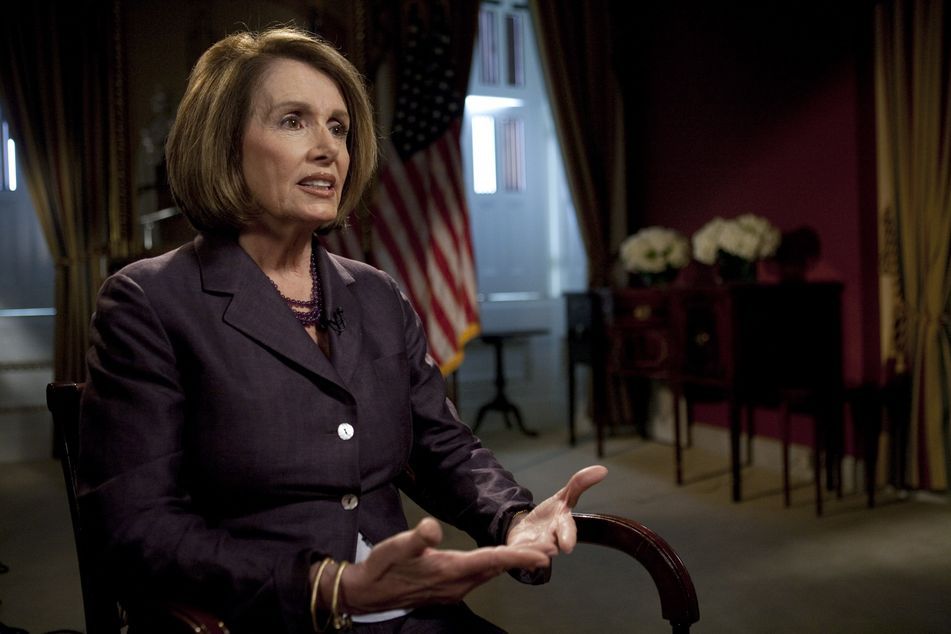Riled-up Dems say estate tax plan ‘a bridge too far’

Democrats take dead aim at $5M exemption, low rate; .14% of estates would owe taxes under Obama's proposal
Senate Republicans won one of their top priorities in tax-cut negotiations with President Barack Obama by securing what would be the second-lowest U.S. estate tax in 80 years.
That victory has now become a focal point for House Democrats, who are venting over what they say is a poor deal that gives a disproportionate amount of benefits to the very rich while padding deficits. House Speaker Nancy Pelosi of California described the estate tax plan yesterday as “a bridge too far,” and one of her lieutenants, Maryland Representative Chris Van Hollen, called it a “huge bonanza.”
“The estate tax has really put people over the edge,” said Representative Allyson Schwartz, a Pennsylvania Democrat and a member of the tax-writing Ways and Means Committee. Democrats as diverse as Earl Pomeroy of North Dakota, a member of the fiscally conservative Blue Dog Coalition, and Earl Blumenauer of Oregon, who belongs to the Congressional Progressive Caucus, cited the estate tax as a factor in their decisions to oppose Obama’s proposal.
Republican negotiators pushed for a top estate tax rate of 35 percent during the talks, a senior administration official said. Obama agreed to that rate as part of his tax cut plan, which would also allow the first $5 million of an individual’s estate to be passed on to heirs tax-free. Couples would receive a $10 million allowance.
‘More Generous Treatment’
“Republicans have asked for more generous treatment of the estate tax than I think is wise or warranted,” Obama said Dec. 6 in announcing a compromise framework that would extend the soon-to-expire 2001 and 2003 tax cuts and reduce payroll taxes by 2 percentage points next year. He said he was compelled to accept the lower rate in order to secure an extension of the tax cuts for middle-income Americans.
Except for this year, during which the estate tax is temporarily eliminated, the 35 percent rate and $10 million exemption would be the lowest tax burden applied to large estates since 1931, when the top rate was 20 percent.
If enacted, the estate tax would be 20 percentage points less than the 55 percent rate set to prevail in 2011 under current law, and the exemption is $8 million larger per couple. Under the plan, the 35 percent rate would be in place for two years.
Victory for Kyl
The estate tax deal represents a victory for Senator Jon Kyl, an Arizona Republican who has spent three years lobbying for the policy. Kyl’s effort, co-sponsored by Senator Blanche Lincoln, an Arkansas Democrat, was joined in the last year by business groups such as the U.S. Chamber of Commerce and the National Federation of Independent Businesses. They supported the effort after concluding that repeal wasn’t possible.
“A $5 million exemption and 35 percent rate will provide much-needed estate tax relief until full repeal becomes possible,” the Family Business Estate Tax Coalition, an umbrella organization of trade groups, said in a statement yesterday.
Many details of the agreement still must be negotiated, including whether to apply the estate tax retroactively for 2010. In the absence of that tax this year, a complicated capital gains tax treatment for inherited estates took its place. Some might choose to file an estate tax return for 2010 under the new rules to obtain more preferable tax treatment.
Few Estates Affected
According to the Congressional Research Service, the Kyl- Lincoln approach would subject just 0.14 percent of U.S. estates to a tax and would generate $11.2 billion in revenue next year. By contrast, the 55 percent top rate, with a $1-million-per- person exclusion, would affect 1.76 percent of estates and would generate $34.4 billion in revenue, the CRS said.
Obama had previously backed, and House Democrats in 2009 passed, a 45 percent rate and a $3.5 million tax-free allowance. If applied for 2011, those parameters would subject 0.25 percent of U.S. estates to a tax and would generate $18.1 billion in revenue next year, the CRS said.
The new plan angered an advocacy group, the American Family Business Institute, which was formed to lobby for a permanent repeal of the levy. It was funded in part by families who would be subject to the tax.
“Hopefully Congress will have the courage to do the right thing and permanently repeal the death tax,” said Dick Patten, the group’s president.
Meanwhile, Chuck Marr, director of federal tax policy at the liberal-leaning Center on Budget and Policy Priorities, said the issue for Pelosi and other Democrats is whether policies they support — such as an extension of unemployment benefits — are enough to offset their disappointment over the estate tax.
“A new estate tax cut windfall for the wealthiest trust-fund kids is hard to fathom,” Marr said. “Still, this framework extends unemployment insurance, the child tax credit, and effectively expands the Obama working- and middle-class tax cut. That’s good news for these families and the economy.”
—Bloomberg News—
Learn more about reprints and licensing for this article.






